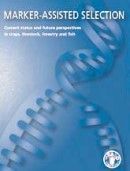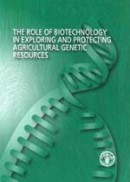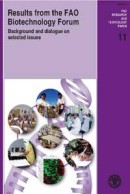Publications
As part of the former Soviet Union, Belarus was a major food producer, particularly of meat and dairy products. However, since gaining independence in 1991, it hardly instituted any structural reforms in the agricultural sector, largely retaining the former system of subsidised collective and state farms. Agricultural production generally declined following independence, but over the last six years, yields have stabilised and even increased in some instances. Private smallholdings contribute significantly to agricultural production. Following the nuclear accident at Chernobyl in 1986, a sizeable area of the productive agricultural land and forest remains contaminated with radioactive fallout.
The regional stakeholder consultation “Building Partnerships for Technology Generation, Assessment and Sharing in Agriculture amongst West Balkan Countries” was jointly organized by the Food and Agriculture Organization of the United Nations (FAO) and the Faculty of Agricultural Sciences and Food of the Ss Cyril and Methodius University, Skopje, The Former Yugoslav Republic of Macedonia from 27 to 29 June 2007. The workshop was attended by 35 selected representatives from research, extension and agricultural technology centres, Ministries and FAO consultants and including 28 representatives from Albania, Bosnia and Herzegovina, Bulgaria, Kosovo, Macedonia, Montenegro, Romania and Serbia.
This chapter provides an overview of the techniques, current status and issues involved in using marker-assisted selection (MAS) for genetic improvement in developing countries. Molecular marker maps, the necessary framework for any MAS programme, have been constructed for the majority of agriculturally important species, although the density of the maps varies considerably among species. Despite the considerable resources that have been invested in this field and despite the enormous potential it still represents, with few exceptions, MAS has not yet delivered its expected benefits in commercial breeding programmes for crops, livestock, forest trees or farmed fish in the developed world.
...Edited by J. Ruane and A. Sonnino, this 187-page book brings together papers from an international workshop held on 5-7 March 2005 in Turin, Italy, on the role of biotechnology for the characterization and conservation of crop, forest, animal and fishery genetic resources as well as the background and summary documents from an e-mail conference on the same subject that was held three months afterwards.
This 152-page, by J. Ruane and A. Sonnino, is published under the FAO Research and Technology series and presents the background and summary documents from a series of six moderated e-mail conferences hosted by the FAO Biotechnology Forum from 2002 to 2005, relating to agricultural biotechnology for the crop, forestry, animal, fisheries and agro-industry sectors in developing countries. Three of the six conferences focused on genetically modified organisms (GMOs), dealing with gene flow from GM to non-GM populations; regulation of GMOs; and participation of the rural people in decision-making regarding GMOs.





